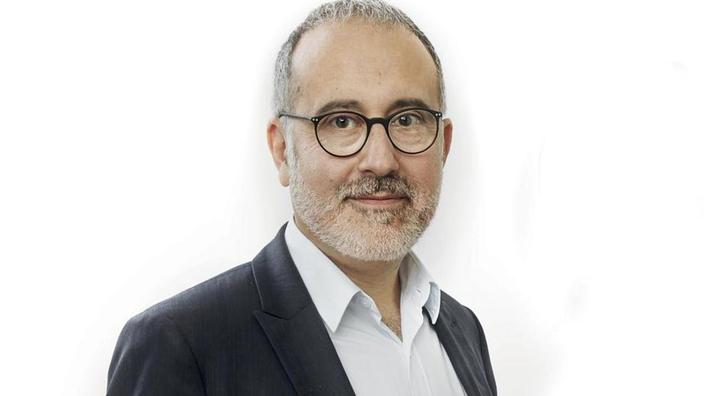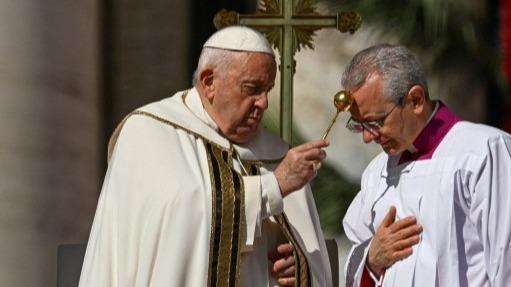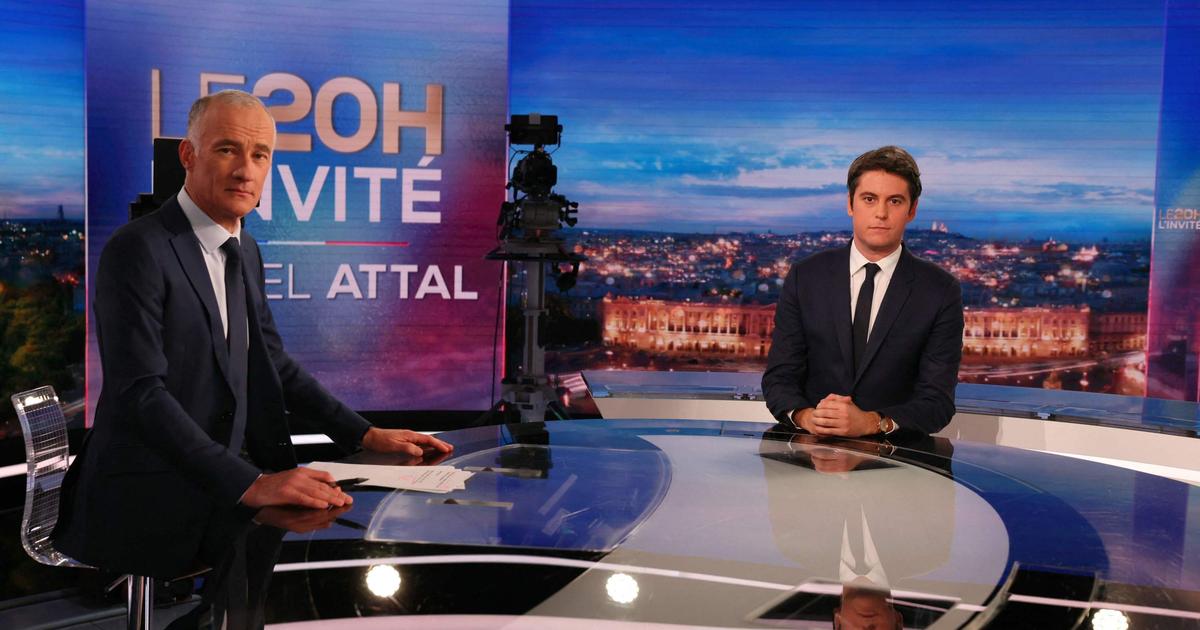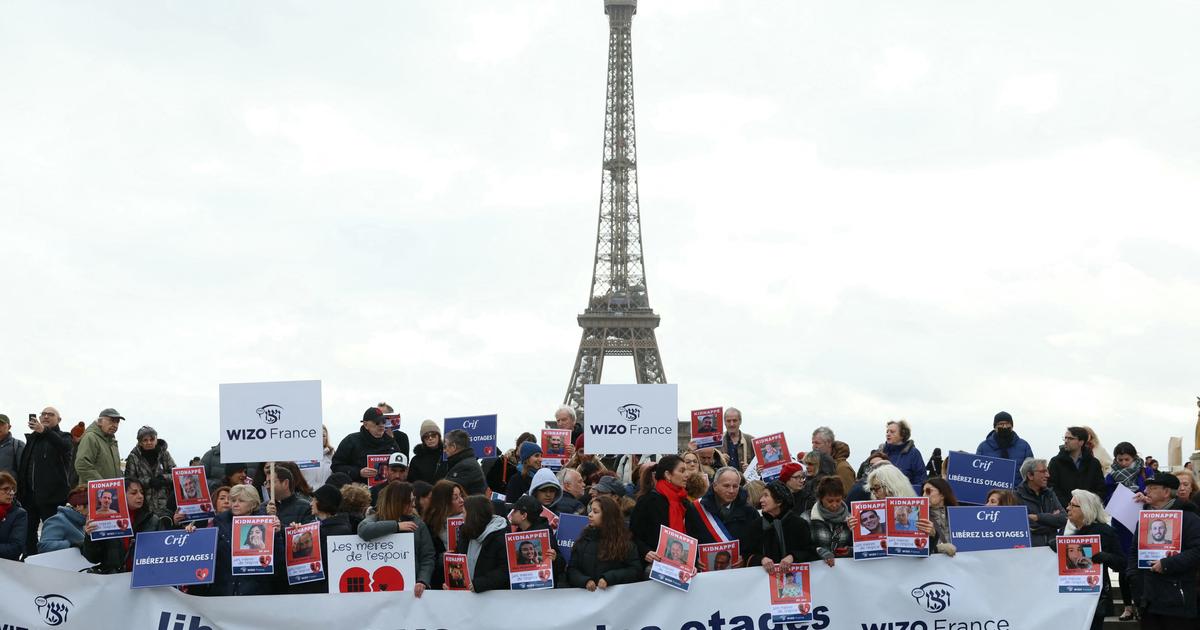Jean-Pierre Denis is a poet and journalist. Director of Bayard Culture and Religion. Latest works:
The Catholics, It's Not Automatic
(Cerf) and
Like a Moving Landscape
(Ad Solem).
FIGAROVOX. -
According to a recent Ifop poll conducted for the Association of Information Journalists on Religions (Ajir), fewer and fewer French people believe in God. They would be 49% today, against 56% in 2011, all religions combined, ie 17 points less compared to 1947. How do you explain this decline?
Jean-Pierre DENIS.-
These results are wonderful! I also hope that one in two French people believe in the Republic, France, politics, equal opportunities or great love. But I fear that, in a society that is both focused on the individual and on the present, the very experience of believing will wither away. According to Cevipof's barometers, “mistrust”, “lassitude” and “gloom” are the three qualifiers in which the French recognize themselves the most. In this anomic and anemic context, I regret that religion is not a safe haven, but I am not surprised that in the process it takes a hit.
To believe, in love as in religion, is to accept to receive. It is to wait with confidence for something that is not there, but that we hope for, that we know intimately that it can be given to us by someone else. Etymologically, moreover, credit and
creed
have the same origin: it is a future. All belief is Pascal's bet. So, if one in two French people still believe in God, this opens up a huge field for evangelization. Because today, the number of people who go to mass regularly fluctuates between 2 and 4%. In short, there is potential.
So it's the words that are the problem, not the numbers. And the first, obviously, is the word "God". Who, what are we talking about? The background noise in our society, when we talk about religion, is not these thousands of modest people that I meet in Lourdes during the national pilgrimage of the Assumption or the Rosary, these little sisters who are the last to live. in difficult neighborhoods, these volunteers who accompany grieving families, or these young people who scout. Rather, it is Islamism and the sexual abuse or abuse of power in the Church. Two problems unfortunately considerable and from which we are far from being out. How to believe in these religions? Likewise, if God is an ideology or simply an element of identity, a concept, a setting,a bearded old man resting on a very French cloud, I confess that I don't have much to do with it. A practicing Catholic, I rank without hesitation among the 51% of French people who have the common sense not to believe it.
The true sharing is undoubtedly there, not between believers and unbelievers, but within the agnosticism which is the condition of our time.
On the one hand, there are those who hope to believe.
And on the other, those who no longer believe they can hope.
And sometimes we oscillate between the two.
Jean-Pierre Denis
But there is something else. The less I drive, the more I will be afraid of driving. The less I speak a language, the less I will dare to speak it. Religion is both a language for saying something else and a vehicle for going further. The less one has the living experience of a presence, of a silence, of a relationship - or of rites rich in meaning, capable of permeating everyday life, as in Judaism - the more the word "believe" and the word "God" appear abstract, empty or parched. It is not for nothing that the “faithful”, of the same family as the word “faith”, is used in sociology to describe the people who practice, but also in morality to evoke the one who remains in the long term. This is true of a husband, wife, political activist, or a clam frog.
When the intimate experience disappears, the sense of God withers. Sometimes it goes out, and it's like religion never existed, you can't even understand what it is. But sometimes it remains. Quite a few people go to churches and appreciate the silence. They entrust their hopes or their pains to a small notebook, light a candle but would find it difficult to pray. Some believe. Some would like to believe, but do not know where to start. They do not say they are believers, but they experience a certain lack, a certain intuition, a certain frustration. They still believe in the possibility of believing. They are looking for a heart that listens. This is what I would call “the delegated faith”: “you who are lucky enough to be a Christian, listen to me, pray for me! ".Twenty-five years ago, the Italian philosopher Gianni Vattimo spoke of this with a phrase: “
to hope to believe
”- in Italian
credere di credere,
but we did not translate as
believing to believe
, because that sounded a bit crow.
The true sharing is undoubtedly there, not between believers and unbelievers, but within the agnosticism which is the condition of our time.
On the one hand, there are those who hope to believe.
And on the other, those who no longer believe they can hope.
And sometimes we oscillate between the two.
The French discuss religion less than before: 38% say they talk about it with their family, compared to 58% in 2009. When only 29% of French people talk about faith with their friends against 49% in 2009 ...
Faith has become the great taboo in French society. Perhaps because we no longer dare to talk about anything with others, as everyone is more and more locked in their identity bubble and so much essential subjects have become inflammable. Or rather, no! Faith has become the big taboo for old people. Because if you go into the details of the figures, you will see that the 25-35 year olds do not have as much prevention as the seniors, and the CSP + as the unemployed. When we carefully scrutinize the poll commissioned by the Association of Religious Information Journalists, we see that the more people are part of the dynamic layers of the population, the more they dare to speak of faith. The France which feels abandoned is also the abandoned France of meaning. It's horrible to me, but not surprising.Cardinal Lustiger had seen it before anyone else, forty years ago.
I also feel more at ease with someone who declares not to believe in God but who is interested in the mystery of existence, rather than with a Christian who claims to believe but keeps to himself what he believes. he received.
To moldy certainty, let us prefer the ferment of doubt!
Jean-Pierre Denis
Believers no longer dare to testify, according to you?
The question of testimony is essential.
A pope of fifty years ago, Paul VI, said that our time wants witnesses and not teachers.
The current pope speaks of “
proximity
”.
In my last two essays, I pleaded for a Catholicism "
attestation
", that is to say present at the great existential crossroads and capable of making a sign.
I also feel more at ease with someone who declares not to believe in God but who is interested in the mystery of existence, rather than with a Christian who claims to believe but keeps to himself what he believes. he received.
To moldy certainty, let us prefer the ferment of doubt!
Is it possible to reverse the trend in the years to come? Will the Catholic Church be able to achieve this?
It is as if you were asking if a hammer will know how to drive a nail: the answer is no. The Church as an institution does not know how to do anything and will never know how to do anything. This is not what we are asking him. An institution institutes, in other words it founds, it strengthens and it forms. From the point of view of the bond between people and between generations it is fundamental, but in terms of evangelization it is not much. In the years to come, the Church-institution will continue to lose a lot of ground, a lot of material and human resources and a good part of the influence which remains to it, if indeed it still has some after the business of it. sexual abuse. I also fear that French society has little chance of emerging from its cultural crisis,whose cultic crisis is at the same time a symptom, a cause and an effect.
However, if this contraction is inevitable, it is not inevitable. Every time we think that proclaiming the Gospel is the business of a professional body, say parish priests, we destroy Catholicism a little more. The future of Christianity begins with each baptism - there we find the importance of the institution. The day when the Catholics will have understood it, really understood it, the Church will wake up and will recover very quickly. This is one of the challenges of "Culture and Religion", the department that Bayard has just created and entrusted to me. This is also the purpose of the “Mission Congress” which will bring together thousands of people in ten cities next weekend. I was telling you about the AJIR survey: the more the French are young, educated, urban,the more they dare to talk about God in family or with their friends. The awakening has started.


/cloudfront-eu-central-1.images.arcpublishing.com/prisa/MC7UM7NN6VGRXK5M2W6JEUECIY.jpg)





/cloudfront-eu-central-1.images.arcpublishing.com/prisa/FGLFT4OJLVAJZOAY4OGN36EX5U.jpg)





